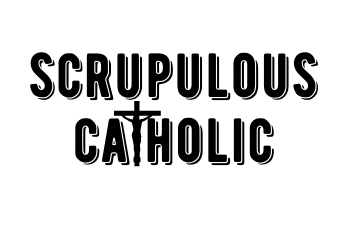For us, Catholics, praying is an essential part of our faithful lives. This is how we connect to God and He connects with us.
As Saint Padre Pio said: “Prayer is the best weapon we possess. It is the key that opens the heart of God.”
But, what if prayer that is supposed to be serene causes one to feel discouraged and fearful?
What if instead of it bringing us to God, it dissuades us to do so?
This was my ultimate struggle back when I was under scrupulosity. I prayed excessively because I felt I had to be perfect before, during, and after each prayer. I could not just control myself but be overly concerned about what God might feel about me while praying. And this is the root cause of why we scrupulous are scrupulous in praying.
When we look at it as not scrupulous, it is clearly pride.
We assume what God feels about us. And this is what we need to correct. Whether in prayer or our ordinary works, we must entrust all that we do to Him.
That said, it is not possible to eradicate the Religious OCD overnight therefore, we have to be patient.
With all the exhaustion scrupulosity brings while praying, we should still continue and never discount the power of praying. Instead of avoiding it, it is better to incorporate praying into the technique I have been using which is exposure.
Exposure therapy has never failed me when it comes to managing my compulsions.
One of its variants is Exposure and response prevention (ERP) in which individuals with OCD are purposefully exposed to the feared stimulus.
The response prevention then refrains the individuals from performing the compulsive behavior or rituals which lessens distress.
Continuous practice of ERP will help those with OCD to put into their system that they can have obsessive thoughts without the need to do compulsive rituals to decrease discomfort.
Now that we already have the technique, let’s discuss the prayers.
Just like any other petition, you can request a more manageable OCD through various prayers.
Here are the prayers that are effective for scrupulosity.
Rosary
Despite having numerous intrusive thoughts while praying the Rosary, I found it to be useful in controlling my compulsions.
When I was still new to praying the Rosary, I was not that conscious of its details. I just recited it without overthinking.
Until my religious OCD started.
I became too focused on how I said it.
I felt it was not as efficacious if I forgot even just one line of it.
Sadly, I always thought I missed it even though I did not.
Applying the ERP therapy, I then decided to just say it while being attacked by impure thoughts without doing my compulsion, which was to repeat the prayer.
I just did it over and over again until I had already gotten used to it.
Praying the Rosary not only gave me grace but also became a way to manage my compulsions.
RELATED– Prayer Journal for Scrupulous
Novena and Prayer to St. Dymphna
Dymphna was the only daughter of a pagan king. She took a vow of chastity at a young age. After her mother’s death, her father wanted to marry Dymphna causing her to flee. When the king found her, Dymphna continued her refusal leading to her death making her a martyr.
St. Dymphna is the patron saint of those who are suffering from mental and neurological disorders.
Praying Novena may induce compulsion, especially for the first-timers.
There is a huge chance of saying the prayer over and over just to make it perfect for one to be satisfied that it is effective.
What I usually do to control this is not to repeat the prayer starting Day 1.
If ever I feel I missed a word, I ignore it and continue praying. Once you do it on the first day, the chance of compulsion on the next days will be lower.
You can check the Novena to St. Dymphna here.
Intercessory Prayers to Scrupulous Catholic Saints
Aside from St. Dymphna, you can also pray through the intercession of the catholic saints who experienced scrupulosity themselves.
Yes, even saints suffered from this doubting disease and with relentless faith, they were able to bore this with trust and courage.
Some of these notable saints are the following:
St. Alphonsus Liguori- Novena to St. Alphonsus Liguori
St. Ignatius of Loyola- Novena to St. Ignatius of Loyola
St. Therese of Lisieux- Novena to St. Therese of Lisieux
The Holy Mass
The Catechism of the Catholic Church states
CCC 1324 “The Eucharist is the source and summit of the Christian life.”
The Eucharist was instituted by Christ at the last supper before he died.
And until now, we Catholics still commemorate it through the Holy Mass.
Just like in other prayers, intrusive thoughts and compulsions may also happen during the Mass.
In my case, whenever I felt I was not mentally present with one of Its parts, I ended up repeating it in my mind.
ERP therapy works here the same way as in the others.
Attending a daily Mass would be a good idea as this will expose you.
Now, when disturbing thoughts bother you, shun or delay saying them.
Do it every single day, it will definitely end the compulsions.
Divine Mercy Chaplet
Impure thoughts about God and His creations are the usual reasons why scrupulous individuals perform rituals.
They fear that they might have offended God thus, decreasing the distress it brings through compulsions.
This fear comes from the idea of God as vindictive and punishing. And as scrupulous we tremble quick enough the moment we feel we displease Him.
With this mindset, we tend to overlook the immense mercy of the Lord which is a sure way to recover from religious OCD.
Divine Mercy Chaplet is a prayer given by the Lord to Sr. Faustina Kowalska as a reminder of God’s merciful love for us all which is suitable especially for the scrupulous.
It teaches us the core message of God for mankind which is to trust in His unfathomable mercy. And in this way, we will learn that whatever confusion there might be because of fear of sin, God’s mercy will always reign.
Conclusion
The longer the prayer, the higher the chance of having more obsessive thoughts, thus, the more the compulsion.
Exposure Response Prevention is a proven technique to mitigate Religious Obsessive-Compulsive Disorder. By being exposed to the fears, the response would change over time.
Scrupulosity is a heavy cross to bear but with prayers and the right technique, just like saints, we can use it to advance in holiness.
For helpful resources on scrupulosity, check this out.

